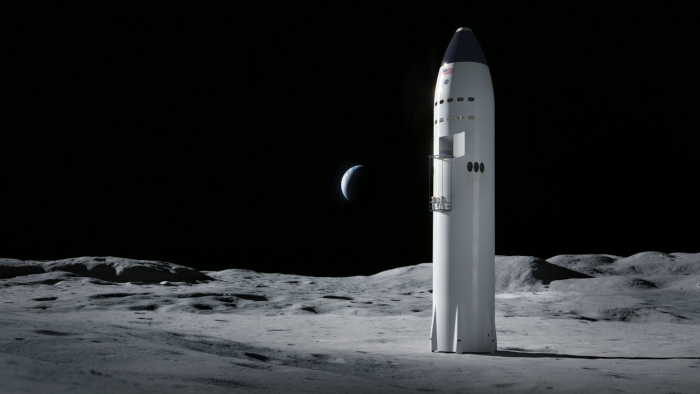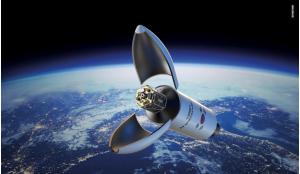A US federal judge has dismissed Blue Origin’s lawsuit seeking to overturn NASA’s single contract to SpaceX for the development of a lunar lander.
The justification for the ruling was not immediately made public, although judge Richard Hertling who delivered the dismissal at a hearing on Thursday, has requested the parties in the lawsuit to agree to a redacted version of his opinion by 18 November, that could be released publicly.
NASA came under fire from Jeff Bezos’ rocket company Blue Origin back in April, after the space agency announced that SpaceX would be the sole provider for its Human Landing System (HLS) with its Starship proposal. Its creator, Elon Musk, envisions that eventually Starship will be used a fully reusable launch and landing system designed for travel to the Moon, Mars, and other destinations.
The space agency usually selects more than one company to establish its systems in case any problems arise during development. A strategy that has served it well in the past with its Commercial Crew Programme; of the two competitors selected to provide crew transportation services to and from the International Space Station (ISS), only SpaceX’s Crew Dragon has made it to the orbital station, Boeing’s CST-100 Starliner spacecraft still remains grounded.
NASA’s HLS decision – an outcome that was put down to funding issues – did not sit well with Blue Origin who subsequently filed protests with the US’s Government Accountability Office (GAO) to lodge their dissatisfaction.
“In NASA’s own words, it has made a ‘high risk’ selection,” said Blue Origin back in April “Their decision eliminates opportunities for competition, significantly narrows the supply base, and not only delays, but also endangers America’s return to the Moon. Because of that, we’ve filed a protest with the GAO”.
The move prompted NASA to inform SpaceX that work had to stop until the GAO resolved the matter.
But despite their efforts, the GAO rejected Blue Origin’s appeal in July. The company responded by taking the matter to the Court of Federal Claims claiming the GAO wasn't able to address "fundamental issues" with the original decision because of its limited jurisdiction.
However, the Court of Federal Claims also upheld NASA’s decision, dealing a final blow to Blue Origin’s attempts to overturn the award.
“NASA was notified Thursday that the US Court of Federal Claims denied Blue Origin’s bid protest, upholding NASA’s selection of SpaceX to develop and demonstrate a modern human lunar lander. NASA will resume work with SpaceX under the Option A contract as soon as possible,” the space agency said in a statement after the ruling.
Blue Origin responded by reiterating its concerns. “Our lawsuit with the Court of Federal Claims highlighted the important safety issues with the Human Landing System procurement process that must still be addressed,” the company said. “Returning astronauts safely to the Moon through NASA’s public-private partnership model requires an unprejudiced procurement process alongside sound policy that incorporates redundant systems and promotes competition.”
Meanwhile company founder Jeff Bezos tweeted “Not the decision we wanted, but we respect the court’s judgment, and wish full success for NASA and SpaceX on the contract.”
His rival, Musk, also took to Twitter to comment on the ruling but posted a meme from the 1995 comic book movie "Judge Dredd," saying "You have been judged."











